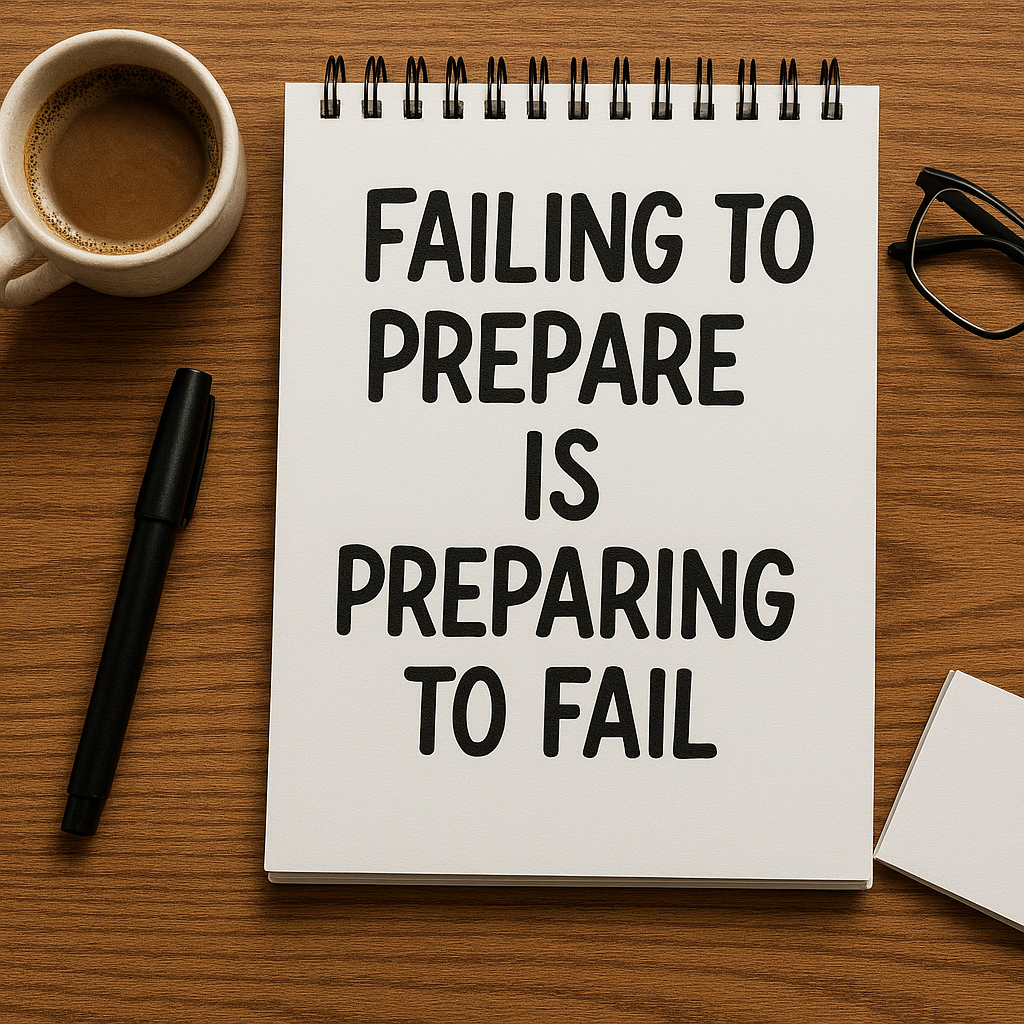Mediation Preparation: Important Pre-Mediation Steps

When it comes to resolving disputes, preparation often determines the difference between success and stalemate. Lawyers who take the time to properly prepare for mediation not only strengthen their client’s positions, but also create the conditions for meaningful negotiation and resolution.
In Philadelphia, South Jersey, and the surrounding areas, mediation has become a trusted tool for resolving contractual disputes, employment conflicts, insurance claims, personal injury cases, and commercial disagreements. Courts encourage it, clients expect it, and in many cases, it saves everyone significant time and expense compared to litigation.
But walking into mediation unprepared can waste valuable hours, or worse, derail settlement opportunities altogether. Mediation is most effective when counsel lay the groundwork ahead of time: preparing clients, exchanging offers, sharing confidential information with the mediator, and clarifying strategy during pre-mediation calls.
This article provides a roadmap for lawyers on how to prepare strategically, avoid common pitfalls, and maximize the chances of success.
Why Preparation Matters in Mediation
Mediation is a process built on efficiency, flexibility, and trust. It’s only as effective as the work attorneys and their clients put in beforehand.
The risks of showing up unprepared include:
- Lost time: Hours spent on basic exchanges that should have been handled in advance.
- Entrenched positions: Parties walk in with hardened stances and little room to maneuver.
- Client frustration: Clients lose confidence in the process when progress stalls immediately.
On the other hand, the benefits of preparation are substantial:
- The session starts with momentum instead of preliminary posturing.
- Counsel can focus on creative solutions, not fact-finding or initial demands.
- The mediator is equipped to guide negotiations more effectively.
Example: Imagine two mediations scheduled for the same day. In the first, no offers have been exchanged, so the morning drags on with opening positions and predictable arguments. In the second, counsel exchanged demands weeks earlier, and the mediator enters the room knowing each side’s pressure points. The second mediation is far more likely to yield results before lunch.
Why You Should Exchange Initial Offers Before Mediation
One of the simplest but most overlooked pre-mediation steps is exchanging offers and demands in advance.
Benefits of pre-session numbers exchange:
- Prevents the “stall phase” where no movement occurs for hours, or worse, parties start at places where it’s difficult for the parties to see a resolution.
- Helps clients feel respected and engaged by demonstrating the other side has already considered their interests.
- Allows both counsel and the mediator to start with momentum and cut directly to problem-solving.
The Importance of Pre-Mediation Conferences with the Mediator
A short pre-mediation call with the mediator is not a formality, it’s a critical step that often determines how the session unfolds.
On these calls, counsel should:
- Identify sensitive dynamics: For example, if a corporate representative and former employee cannot sit in the same room, the mediator can adjust the format.
- Clarify process and logistics: Whether to start with joint sessions, individual caucuses, or a hybrid approach.
- Discuss practical barriers: Liens, insurance coverage issues, or third-party approvals that may affect settlement.
- Assess readiness: Sometimes a mediation session is premature. A candid conversation allows the mediator to recommend whether rescheduling would better serve the parties.
Example: In an employment discrimination case in Philadelphia, counsel may alert the mediator to confidentiality concerns or ongoing workplace dynamics. With that knowledge, the mediator can set expectations around non-monetary terms such as neutral references or confidentiality clauses.
Why Confidential Mediation Statements Matter
Another powerful tool for counsel is the confidential mediation statement.
Confidential submissions allow lawyers to:
- Provide context the other side doesn’t see.
- Flag sensitive issues, like strained client relationships, internal politics, or settlement authority limits.
- Equip the mediator with the full picture to steer negotiations effectively.
Balance is key: Counsel should be candid without undermining negotiation leverage.
Example: If an insurer’s settlement ceiling is $250,000, disclosing this confidentially helps the mediator manage expectations and assess whether additional authority will be necessary. Without this insight, the mediator might push the plaintiff toward unrealistic numbers, causing unnecessary frustration. Moreover, having this knowledge permits the mediator to assess whether the mediation should move forward as planned.
How Lawyers Should Prepare Clients for Mediation
Clients often walk into mediation expecting a courtroom battle or a quick “yes” or “no” settlement. It’s your role to set the tone.
Points to cover in client preparation:
- Mediation is not trial. The focus is on dialogue, flexibility, and problem-solving.
- Settlement is a process, not a single number. Clients should expect to move gradually, not land immediately at their ideal outcome.
- The mediator is neutral. They will challenge both sides and test assumptions; not because they are biased, but because that pressure facilitates compromise.
Role-playing the mediator’s questions with the client can also build confidence and reduce anxiety. When clients understand what to expect, they are less likely to feel blindsided and more likely to remain engaged.
What Evidence Should Be Shared with Opposing Parties Before Mediation?
Another key question is what to share and when. Sharing too little leaves the other side skeptical. Sharing too much prematurely can weaken negotiation leverage.
Evidence typically worth sharing before mediation:
- Demand packages with supporting documentation.
- Key expert reports.
- Core exhibits that frame damages or liability.
What to hold back until necessary:
- Impeachment evidence that would undermine credibility.
- Sensitive strategic analyses.
- Settlement positions you’re not ready to disclose.
Practical Steps to Ensure a Smooth Mediation Day
Even the strongest legal arguments won’t matter if logistical missteps derail the process.
Practical steps lawyers should prioritize:
- Confirm settlement authority: Ensure the right decision-makers are present, or at the very least, available, whether in person or by phone. Mediations often stall when an adjuster or executive isn’t available to approve terms.
- Plan for format: Decide whether the mediation will be in-person or conducted virtually. For virtual mediations, test technology in advance to avoid delays.
- Bring drafts: Having draft settlement agreements ready shows seriousness and allows parties to finalize terms on the spot. Alternatively, have a draft term sheet for the parties to execute in order to avoid buyer’s remorse later.
A simple checklist the day before—confirming attendance, technology, and authority—can prevent setbacks and wasted time.
Common Mistakes to Avoid in Pre-Mediation Preparation
Despite best intentions, lawyers sometimes undermine mediation success by skipping crucial steps.
Common pitfalls include:
- Arriving without exchanging offers in advance.
- Keeping the mediator “in the dark” about key issues.
- Over-coaching clients to stay rigid, leaving no room for compromise.
- Failing to ensure someone with actual authority is available.
Avoiding these mistakes not only improves the likelihood of settlement, but also enhances your credibility with both your client, the mediator, and the other parties.
Conclusion: Preparation is the Path to Resolution
Successful mediation doesn’t happen by accident; it happens by preparation. By exchanging offers ahead of time, holding pre-mediation calls, sharing confidential insights, preparing clients, and managing logistics, lawyers in Philadelphia, South Jersey, and surrounding regions can give their clients the best possible chance of achieving resolution.
At AJS Resolutions, I believe in mediation that is thoughtful, efficient, and tailored to the realities of each case. If you’re preparing for mediation, consider how these pre-mediation steps can transform your next session into a true opportunity for resolution.
Contact AJS Resolutions today to schedule your mediation or arbitration session with Ari Sliffman—serving Philadelphia, South Jersey, and beyond.
